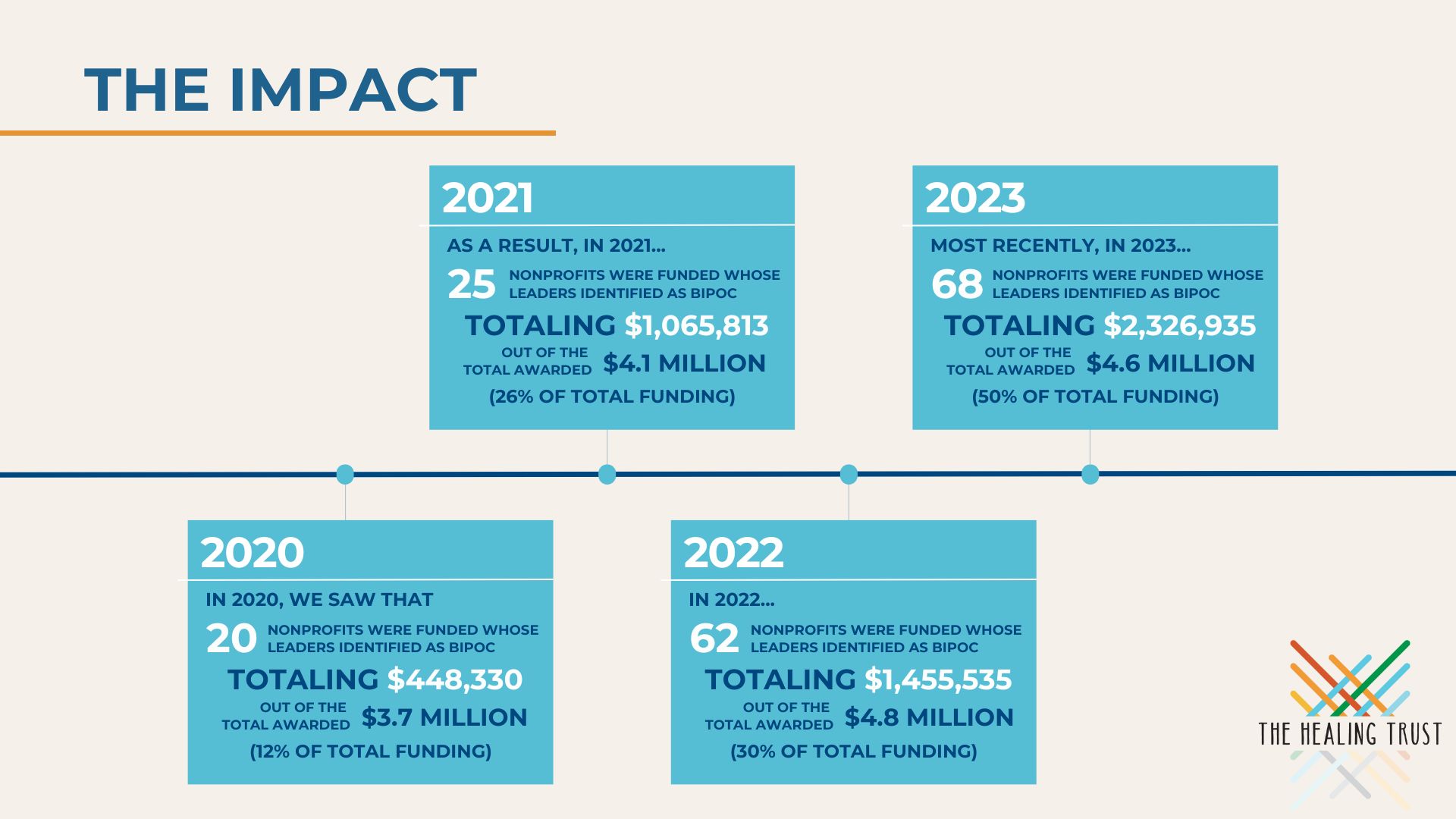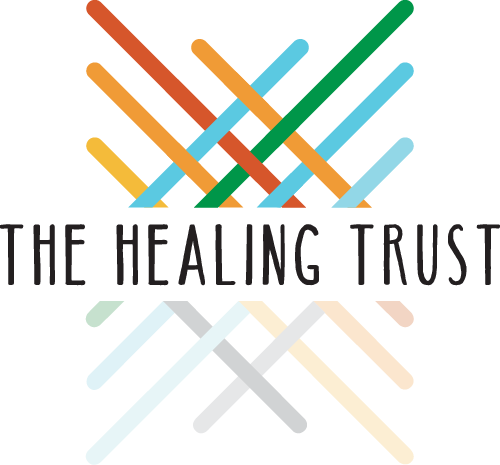OUR COMMITMENT TO EQUITY
In 2019, our team started to think more intentionally about healing and racial equity.
Since then, our staff, Equity Leadership Team and Board of Directors have:
The journey toward creating a more equitable world is far from finished and we continue to work diligently to go further. We are currently in the process of another equity assessment/check-in to help guide our future work and to hold us accountable for the commitments that we initially made. We’re optimistic about the future and hope other organizations will join us on as we work to create something better than what has been.
Over the past 5 years, we have
- Changed our mission and values.
- Examined and updated our grantmaking processes to be more inclusive.
- Supported the building of the community’s capacity for and understanding of racial equity and justice.
- Converted all grants (except staff support and sabbatical) into operating grants.
- Expanded The Trust’s definition of health (from clinical health to some social determinants of health) and created a policy agenda focused on racial equity.
- Applied a racial equity lens to all our work.
- Intentionally engaged and increased our financial support for nonprofits whose leaders are Black, Indigenous, and People of Color (BIPOC).
- Created Participatory Grantmaking programs Bedford and Montgomery counties, as well as in the 37208 community of Davidson County.
- Diversified our board and staff.
- Created retreat opportunities for Black and BIPOC nonprofit staff, recognizing that it was necessary to create space for those often-marginalized groups to heal and reflect together.
We have also made significant strides toward increasing our support of BIPOC-led nonprofits and increased our grantmaking to those organizations by 419% from 2020-2023.

EQUITY FAQs
What does racial equity mean?
Racial equity is the condition that would be achieved if a person’s racial identity no longer predicted how they were likely to fare. When we use that term, we are thinking about racial equity as one part of racial justice and include work to address the root causes of inequities, not just their manifestation. This includes the elimination of policies, practices, attitudes, and cultural messages that reinforce differential outcomes by race or fail to eliminate them.
Why is THT moving to a racial equity lens?
As we celebrate our 20th year of giving, we are keenly aware that while the funding that we have provided has been helpful to our partners, it has not “moved the needle” in terms of addressing or reducing health disparities. We believe that intentionally focusing on race-based health disparities is the best way to begin making long-term changes. The spirit of our values is the same, but the way we implement them will change.
How do you define rural?
We define rural communities as the non-metro counties outside of Davidson County. Davidson County is the only metropolitan county in our service area, so we consider the other counties that we serve to be rural.
What about intersectionality with other disabilities/other marginalized groups?
Our focus is on eliminating health disparities. Racial health disparities show that even when you control for socio-economic status, Black, Indigenous, and People of Color have higher rates of infant mortality, maternal death, and more difficulty accessing services when they have disabilities. We understand that other populations are marginalized and as there is overlap between those groups, we will also address those needs.
Are there any suggestions for what organizations with predominately white service areas can do to remain in consideration for funding?
There’s no one-sized fits all approach. Every organization will have to examine what it means to implement racial equity in their organizations. The things your organization needs to do may be different than what another organization needs to do. You will have an opportunity to discuss your organization’s racial equity process/journey during the application process. There isn’t a racial equity checklist, and we don’t want anyone to be tokenized.
Being a BIPOC-led organization does not guarantee funding and being a white-led organization does not guarantee denial.
We serve predominantly white, rural, poor, and underserved counties. Will our funding be cut?
Even if the population of Black, Indigenous, and People of Color in your community is small, it’s still worthy of time and investment. We do still plan to fund in rural areas and understand that the populations in those areas are not as racially diverse as they are in more urban counties. However, Black, Indigenous, and People of Color also live and work in rural communities. In communities where there are people of color, we want to know if they are being served and if the staff is reflective of the people being served.
Being a BIPOC-led organization does not guarantee funding and being a white-led organization does not guarantee denial.
Are there any resources that you recommend for us to learn more?
- Washington Race Equity & Justice Initiative’s “Organizational Race Equity Toolkit” (pg 36-41)
- Mayvin’s “Restorative HR Practice: A Toolkit”
- Multnomah County’s Equity and Empowerment Lens
- Race Forward’s Racial Justice Impact Assessment
- Dr. Kimberle Crenshaw’s “The Urgency of Intersectionality” TED Talk
- “Moving Beyond Diversity toward Racial Equity,” Ben Hecht, Harvard Business Review
- “What Works: Evidence-Based Ideas to Increase Diversity, Equity and Inclusion in the Workplace,” University of Massachusetts Amherst’s Center for Employment Equity
- The Annie E. Casey Foundation’s Race Equity and Inclusion Action Guide
